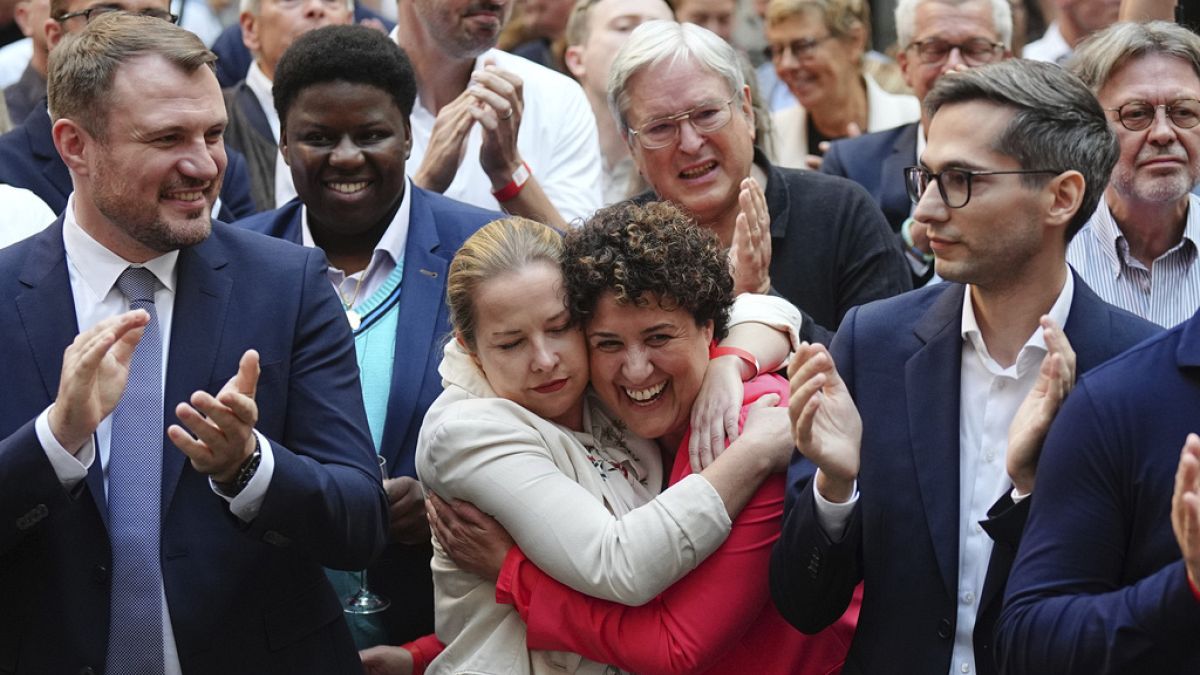The recent election in Brandenburg, Germany, was closely watched due to the issues of migration, internal security, and peace being at the forefront of the campaign. The Social Democrats (SPD), led by German Chancellor Olaf Scholz, narrowly won the election with 30.9% of the votes, beating out the far-right Alternative for Germany (AfD) party, which came in second with 29.2%. The Sahra Wagenknecht Alliance (BSW) and the centre-right Christian Democrats followed with 13.5% and 12.1% respectively. The victory for the SPD was seen as a reprieve for Scholz, whose governing coalition has faced challenges in previous elections this year.
Despite being the face of the party, Scholz’s success in Brandenburg was largely attributed to the state governor, Dietmar Woidke, who distanced himself from Scholz during the campaign. Woidke even took the risky measure of promising to resign in the event of a victory for the far-right. After the polls closed, Woidke expressed his victory as not only important for himself and his party but also for the state of Brandenburg. The success of the SPD in this election could have significant implications for Scholz’s political future, as he has expressed his desire to be the party’s candidate for Chancellor in the next federal election. The results of this election will likely shape the narrative for Scholz and the SPD in the upcoming months.
The election results in Brandenburg come after the far-right AfD made gains in two other eastern German states, garnering attention and concern from the public. The AfD’s strong showing in previous elections raised alarms about the rise of far-right ideologies in the region. However, the victory of the SPD in Brandenburg signifies a shift in the political landscape and a rejection of far-right extremism. This outcome has provided a sense of relief to those who oppose the AfD and its divisive policies.
Migration, internal security, and peace were key issues that resonated with voters in Brandenburg, influencing their decision at the polls. The results of the election indicate that the electorate prioritizes stability, unity, and inclusivity, which could have implications for future policy decisions in the region. The victory of the SPD also highlights the importance of local leadership and strategic campaign tactics in winning over voters. Woidke’s decision to distance himself from Scholz and make bold promises may have played a crucial role in securing the party’s victory.
The success of the SPD in the Brandenburg election serves as a validation of their governance in the region since 1990. The party’s long-standing presence and track record of addressing the needs of the people have solidified their position as a trusted political force in the state. The victory in this election reaffirms the support for the Social Democrats and their policies, setting the stage for continued progress and development in Brandenburg. Moving forward, the SPD will need to build on this success and address the concerns of the electorate to maintain their stronghold in the region.
In conclusion, the election in Brandenburg was a significant moment in German politics, with implications for both local and national leadership. The victory of the SPD over the far-right AfD signals a shift in public sentiment and a rejection of extremism. The role of local leaders, strategic campaigning, and prioritizing key issues were all factors in the success of the Social Democrats in this election. As the political landscape continues to evolve, the results of this election will shape the narrative for parties and candidates as they prepare for future challenges and opportunities.











